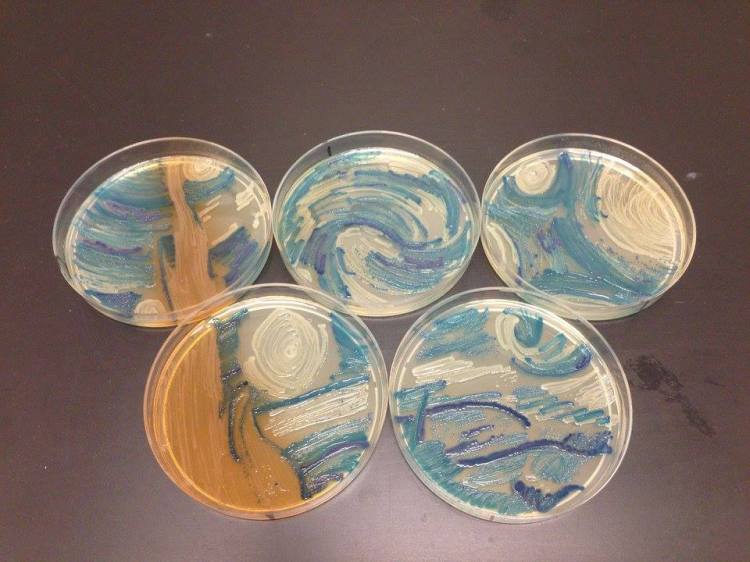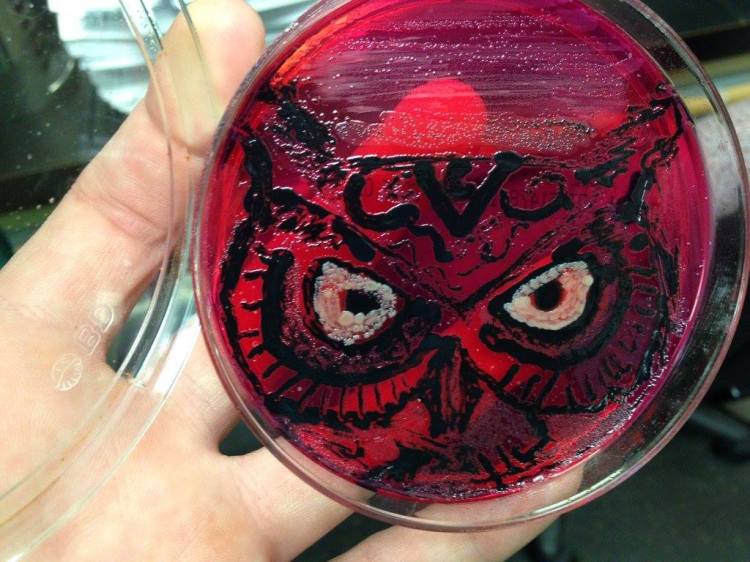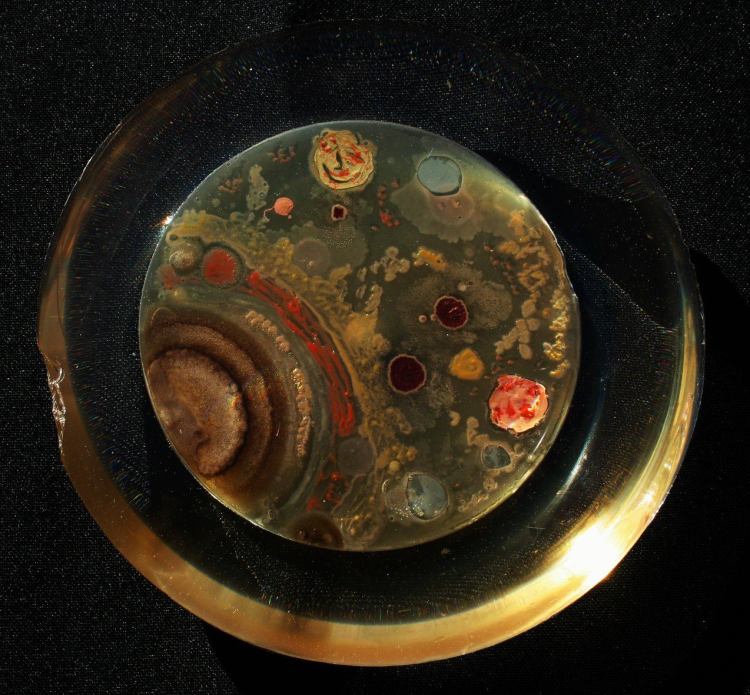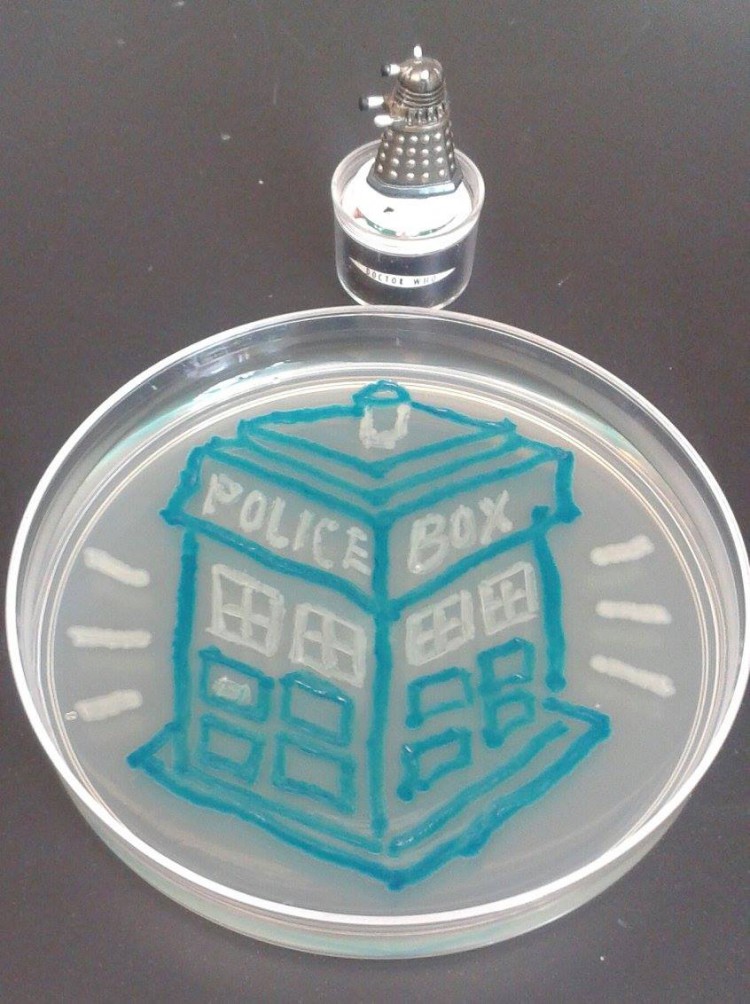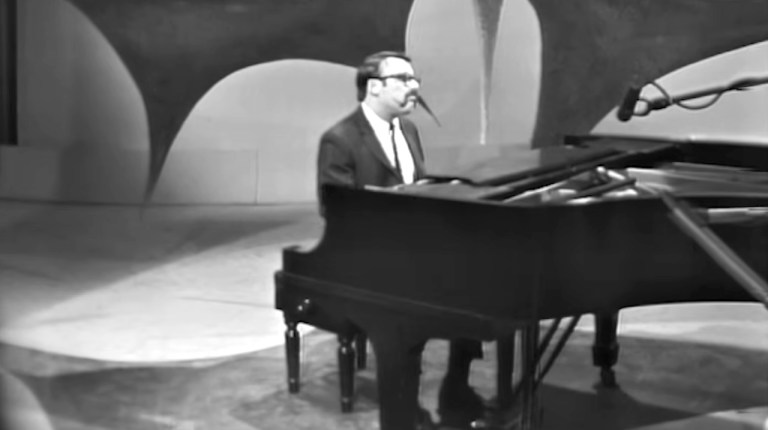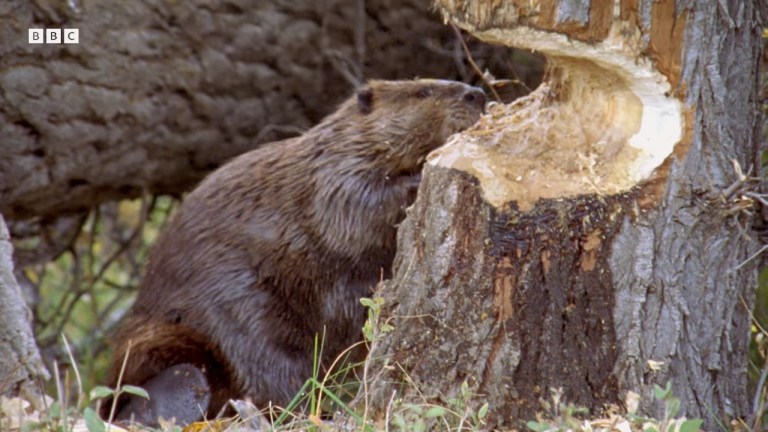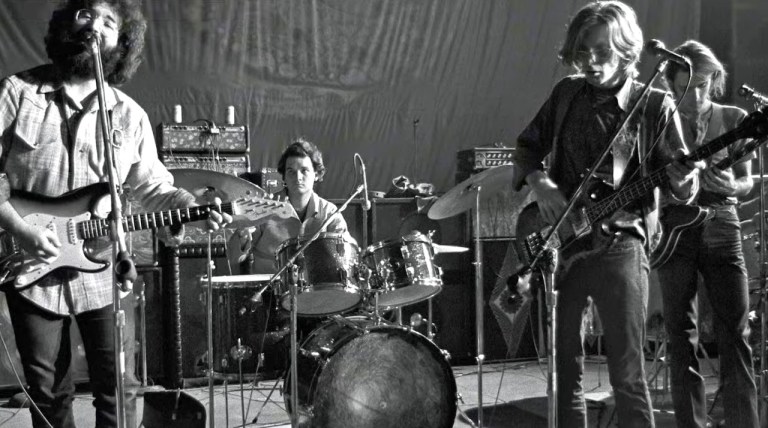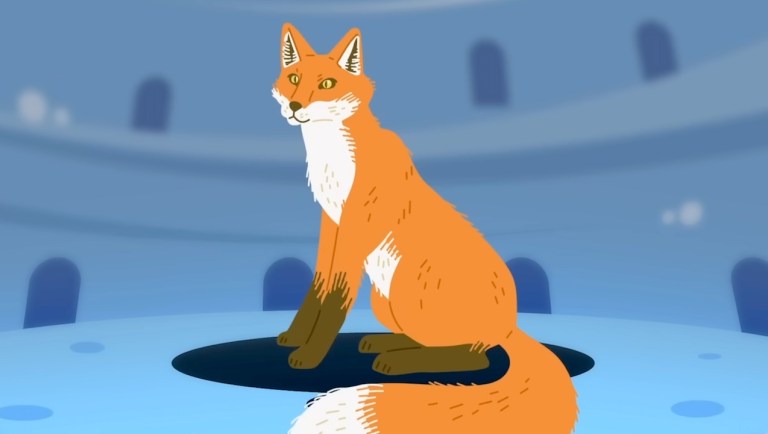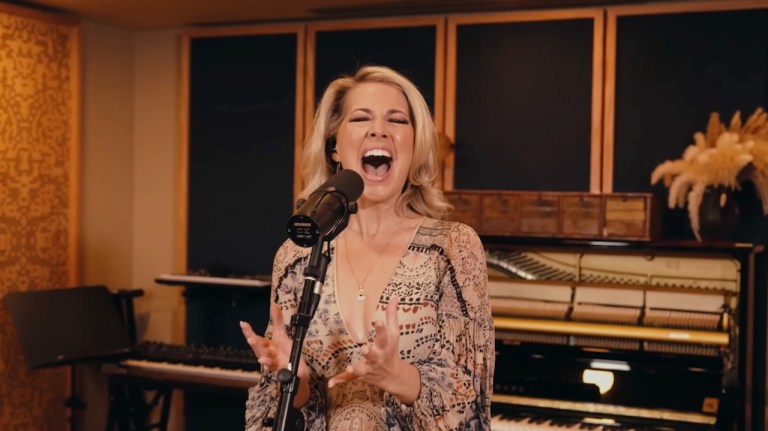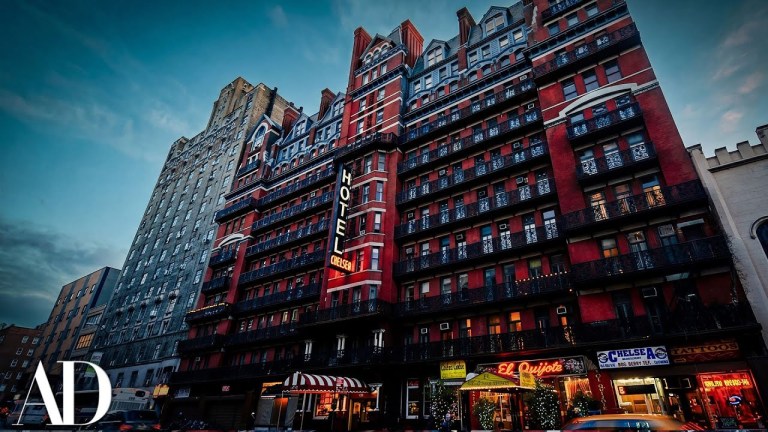Cultured Scientists Compete to Create Fascinating Artwork From Colorful Strains of Bacteria
In their very first Agar Art Challenge, the American Society for Microbiology (ASM) recently put a culture challenge to microbiologists around the world. The object of the contest was to create art from different strains of colorful bacteria onto a background agar. Among the submissions received was a recreation of Vincent Van Gogh‘s “Starry Night“, a detailed image of human neurons (“Neurons” – first place winner), a a map of New York City (“NYC Biome MAP – second place), an inviting home in the country (“Harvest Season” – third place) and even a drawing of the TARDIS in a teal blue.
This [TARDIS] design was drawn using the E. coli background DH5?, which contains a chromosomal copy of lacZ?, an allele that synthesizes only one part of the ?-gal protein (the ?-peptide). Both strains were transformed with a commercial vector containing the lacZ? fragment, which can complement in trans when expressed. The complete LacZ protein is therefore made in the blue strain, but not in the white one. Blue/white screening is a common method used by cloning vectors to determine whether the plasmid construct contains either the correct piece of DNA or the correct orientation. Allons-y!
The ASM took great care to ensure that the contestants used the utmost of care while creating these works of art, implementing the “Guidelines for Biosafety in Teaching Laboratories” as the rule.
These guidelines represent best practices for safely handling microbes, based on the safety requirements found in the Centers for Disease Control and Prevention’s (CDC)’s Biosafety in Microbiological and Biomedical Laboratories (BMBL). Guidelines for safely handling microbes at both biosafety level 1 (BSL1) and at biosafety level 2 (BSL2) were developed. The guidelines are brief by design for ease of use and provide educators with a clear and consistent way to safely work with microorganisms in the teaching laboratory.
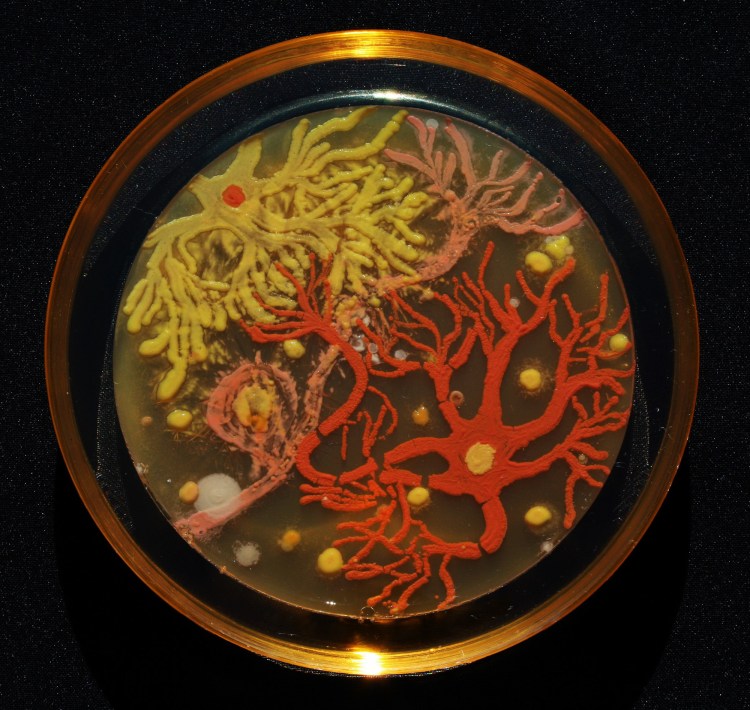
First Place: “Neurons” – submitted by Mehmet Berkmen of New England Biolabs, with artist Maria Penil.
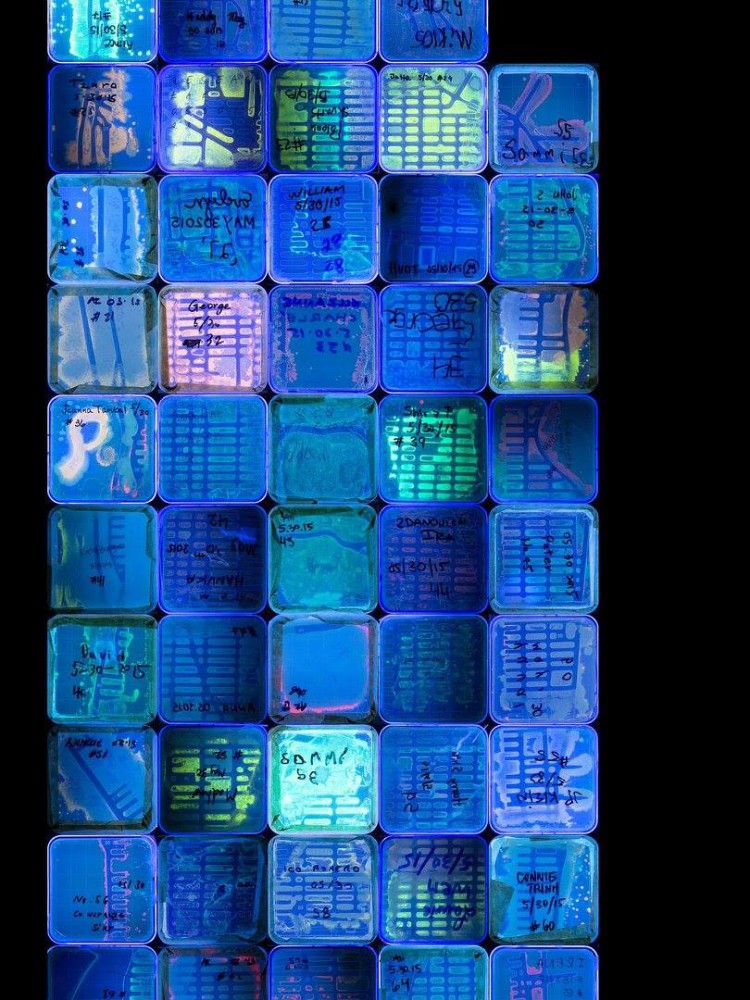
Second Place: “NYC Biome MAP” – Christine Marizzi, Cold Spring Harbor Laboratory/DNA Learning Center
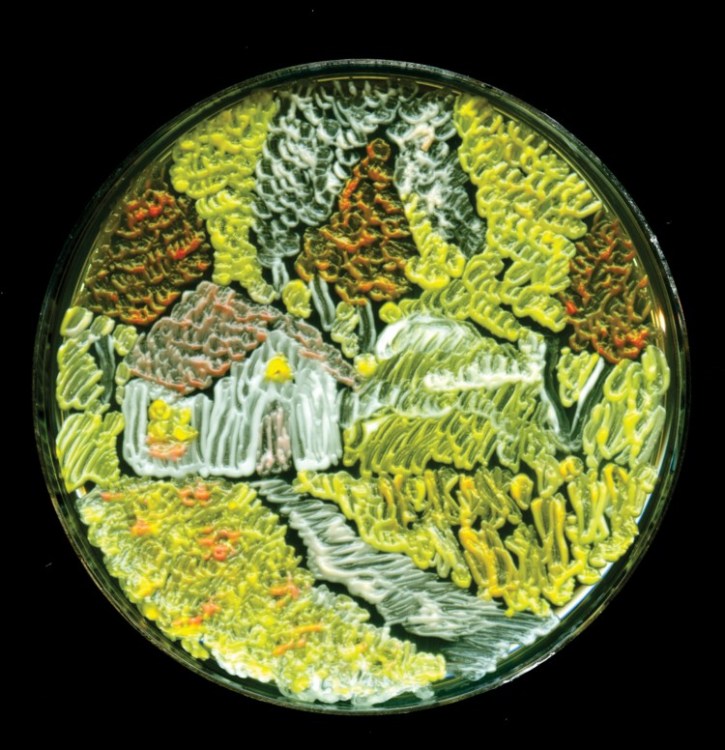
Third Place: “Harvest Season” submitted by Maria Eugenia Inda, CSHL
images via American Society for Microbiology
via Huffington Post

